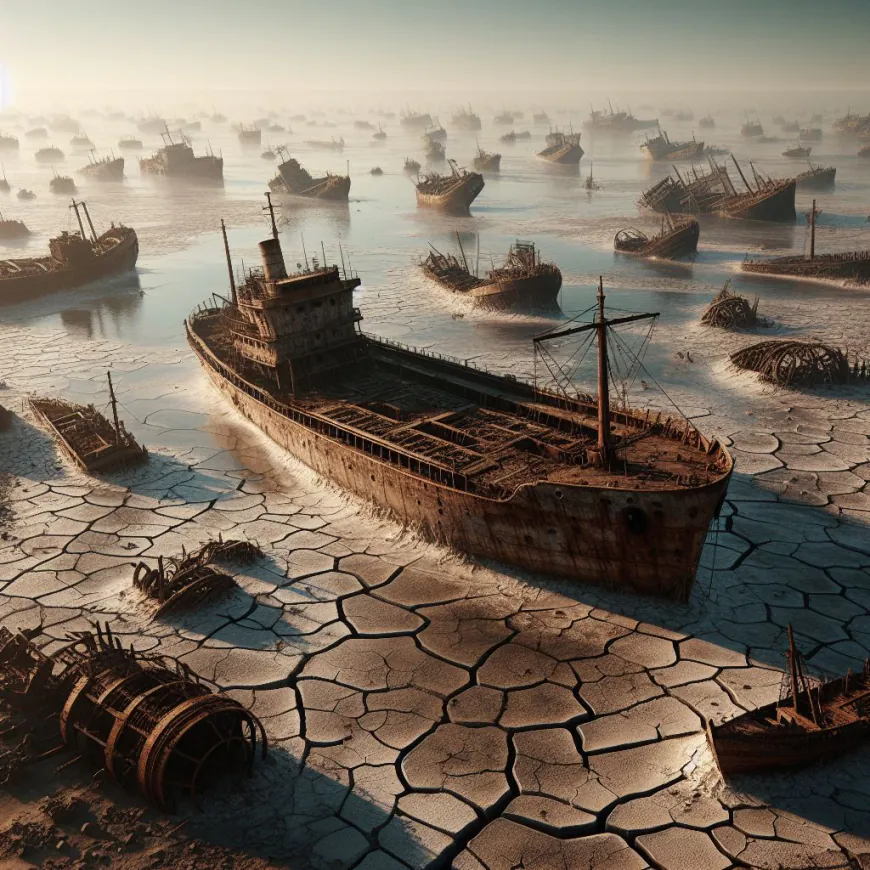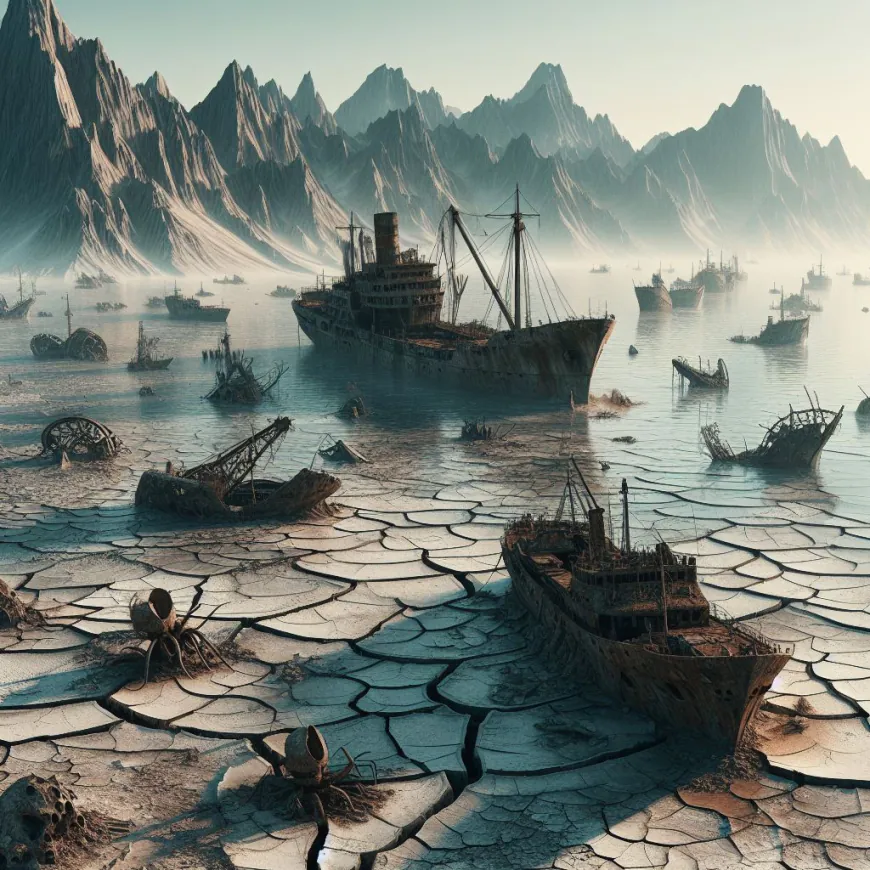What If All The Oceans Dried Up?
From waves to wasteland: Dive into a world without oceans. Desertification, temperature extremes, and the fight for survival.

What If All the Oceans Dried Up?
Introduction
Imagine a world where the vast oceans, once teeming with life and mystery, have vanished. The familiar rhythm of waves crashing against the shore is replaced by eerie silence. The salty scent of sea air is but a distant memory. What would happen if our blue planet turned into a parched desert, devoid of its life-giving waters? Let’s explore this hypothetical scenario and delve into the consequences of a waterless Earth.

The Benefits of Earth’s Ocean Water
Our oceans play a crucial role in maintaining the delicate balance of our planet. They serve as both a thermostat and a circulatory system, regulating temperatures and distributing energy. Here’s how:
-
Temperature Regulation: The oceans absorb and distribute solar radiation. Without water, the equator would scorch under intense sunlight, while the poles would freeze in perpetual darkness. Thankfully, water acts as a buffer, preventing extreme temperature fluctuations. Warm currents flow toward the poles, while cold water returns to the equator, ensuring a habitable climate for diverse life forms.
-
The Water Cycle: Oceans drive the water cycle—the perpetual movement of water between the seas, the atmosphere, and the land. When the equator heats up, water evaporates, forming clouds. As warm air rises, it draws in cooler air from below, creating a balanced heat distribution. This process transforms inhospitable regions into lush, balmy environments. Think of the Mediterranean’s temperate climate or palm trees thriving in Scotland, warmed by the Gulf Stream.
How Much Water Would Be Left?
Now, let’s envision a world where the oceans have vanished, leaving behind only dry soil. We’ll assume that the soil retains some moisture, sparing us from immediate dust storms. Here’s what remains:
-
Ice Caps, Lakes, and Rivers: These sources account for about 3.5% of our current water supply. Ice caps and glaciers hold most of Earth’s fresh water, with Antarctica alone containing a staggering 68.7% of it. However, even if we melted the ice caps, it wouldn’t be enough to sustain a global water cycle.
-
Underground Water: Beneath the surface, groundwater still exists. However, it’s a mere fraction of what the oceans once held.
In total, we’re left with a paltry 3.5% of our original water supply. Rainfall would become a rarity, and our planet would transform into a vast desert.
Worse Than the Ice Age?
During the last Ice Age, glaciers covered much of the Earth. But even then, pockets of life clung to existence. In our ocean-less world, survival would be far more challenging. Here’s why:
-
Desertification: The absence of oceans means no moisture to fuel the water cycle. Dry land would expand, swallowing forests, grasslands, and fertile soil. Deserts would sprawl across continents, leaving little room for life.
-
Extreme Temperatures: Without oceans to regulate temperatures, daytime heat would be unbearable, while nights would plunge into frigid cold. Life would retreat to underground refuges or adapt to extreme conditions.
-
Fire and Dust: The lack of water would turn vegetation into tinder. Wildfires would rage uncontrollably, consuming entire ecosystems. Dust storms would scour the land, erasing any traces of past oceans.
Last Stop… Antarctica?
Antarctica, the icy continent, would ironically become our last bastion of water. Its glaciers and ice sheets would be the sole reservoirs, harboring life in their frozen depths. But even Antarctica would eventually succumb to the relentless dryness.
Conclusion
In a world without oceans, humanity would face an existential crisis. Our survival would hinge on innovation, adaptation, and cooperation. Perhaps we’d learn to harvest moisture from the air or tap into underground aquifers. But one thing is certain: the loss of our oceans would forever alter the fabric of life on Earth. Let’s cherish our watery blue planet and protect it for generations to come.
What's Your Reaction?








































